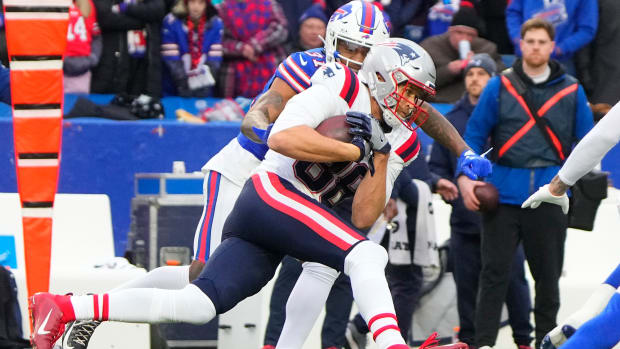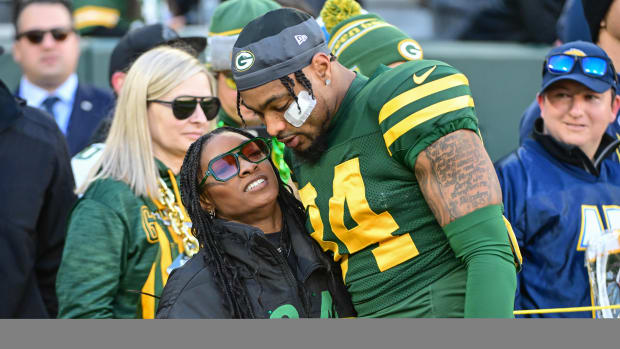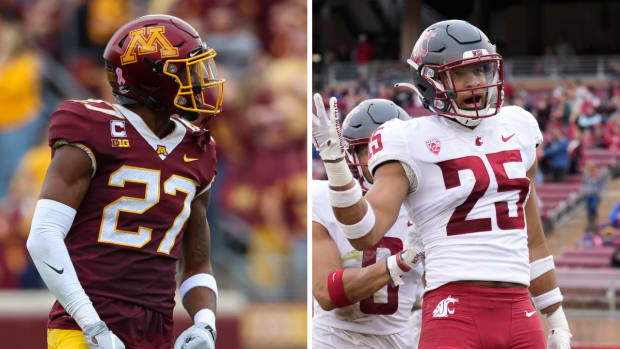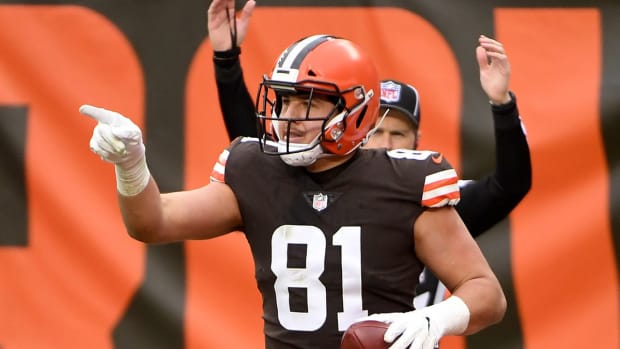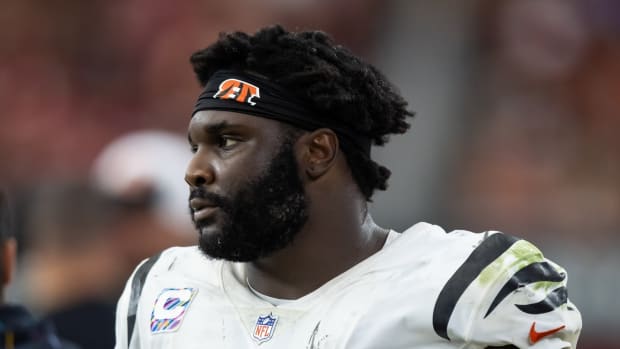The Patriots Stared Him Down, But Stephon Gilmore Didn’t Blink
Week 4 was about a long-term personal relationship for the Patriots.
Week 5, evidently, will be about a professional one.
New England people have long been fond of positioning days like this one as being about “business,” and in those terms, over the last year and a half, the team just met its match in Stephon Gilmore, its best player in the still-relatively-new post-Brady era. Gilmore never took his fight public. He never showed outward rebellion the way other players in these sorts of spots do. He never leaked out his feelings through his teammates or camp.
This, to Gilmore, was always about business, and he approached it that way, start to finish. His reward now is the chance to go home to the Carolinas, play with a couple of promising young corners (when Jaycee Horn gets back) and set up a big 2022 payday.
The story really started last year, with Gilmore coming off winning Defensive Player of the Year and looking for a correction to the five-year, $65 million deal he did with the team in March 2017. The Patriots eventually bent, just before the opener, and moved $5 million from '21 to ’20, to give him the real-time bump he wanted. The resulting problem was that $5 million would only qualify as a raise if the team gave him another bump in ’21. Otherwise, it was just a cash advance.
For that reason, everyone involved knew then and there that there was a decent chance Gilmore wouldn’t play for New England in ’21. If he did, it certainly wouldn’t be for the $7 million left on his contract after last summer’s adjustment.
Then, Gilmore tore his quad. Then, his desire for an extension led to an ask for something similar to the contract Darius Slay landed in Philly in 2020—a three-year, $50 million extension that was Slay’s third as a pro. Then, negotiations on an extension went nowhere, and so came deliverance on the promise that Gilmore wasn’t going to play out the final year of his deal in full at $7 million, especially since he was coming back from injury.
That injury, it turned out, became his leverage. The Patriots quietly shopped him multiple times over the last 18 months, and that period showed they were only willing to move money around in his contract, rather give him more of it as part of a market correction without mitigating risk. Which is to say the team continually protected itself. And so when the time came to play in 2021, Gilmore basically made the decision that he’d protect himself, and mitigate his own risk by taking his time coming back from injury, implicitly agreeing to play part of but not the whole season, for that $7 million while he got fully and completely healthy.
That torn quad? It’s 100% healthy now. And Gilmore is in position to play in a defense that fits him, for a contending team, with an eye on landing another contract five months from now.
As for the Patriots, it’s hard to believe Bill Belichick let things get to this point, given his history of getting ahead of these things. But as it was, the Patriots needed cap space to bring veteran linebacker Jamie Collins back for his third tour in New England. To create it, they went to Gilmore. Gilmore was willing to help the Patriots only if there was something in it for him, but the Patriots were unwilling to give him the raise he wanted.
From there, New England discreetly called teams Belichick trusts Tuesday to shop Gilmore, and got word of his release out early enough Wednesday so other teams could make their offers before New England would have gone through with his release at 4 p.m. ET.
The Panthers wound up getting him for a sixth-round pick 18 months from now. Carolina now gets to put an All-Pro in a room with C.J. Henderson, Donte Jackson and A.J. Bouye, with the hope that Jaycee Horn is back to join them in December with, basically, a bag of pylons going back to Foxboro.
And getting that sort of measly return is on the Patriots. Again, last September, it was obvious to anyone paying attention that Gilmore wasn’t playing on his existing deal in 2021. At that point, especially in a de facto rebuilding year, they should’ve started planning for the next 18 months with their best player, whether that meant paying him or finding a way to get a return for him. Instead, he’d play 11 more games, get paid $16.71 million for those games, and bring next to nothing in a trade.
The problem? Well, for years, the Patriots have done good business this way, taking a cold approach in staring players down at the negotiating table.
In Gilmore, they ran into one who wouldn’t blink.
More NFL Coverage:
• MMQB: Brady, Belichick Reunion Lives Up to Hype
• MAQB: Don't Count Out Ezekiel Elliott Just Yet
• 6 Things to Know After Week 4
































